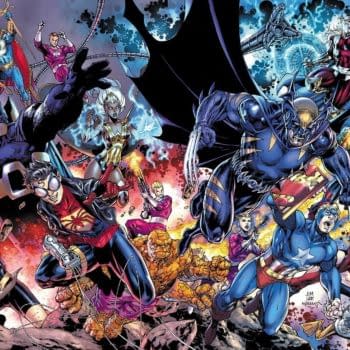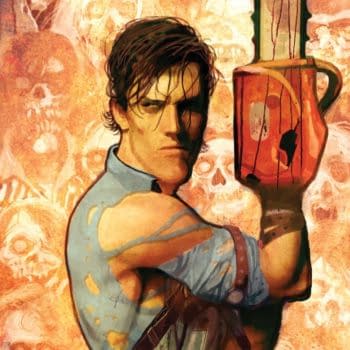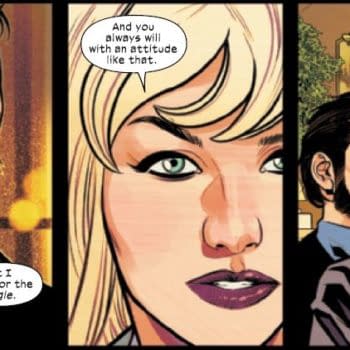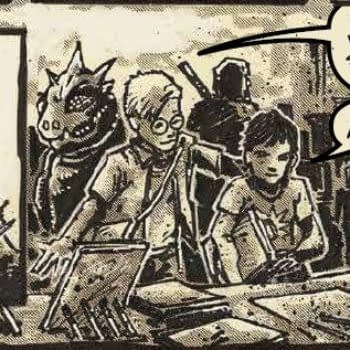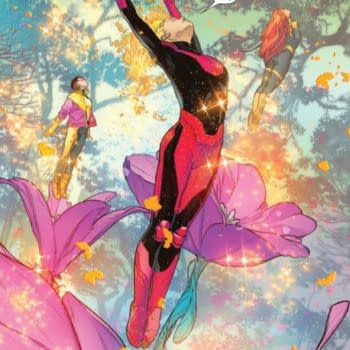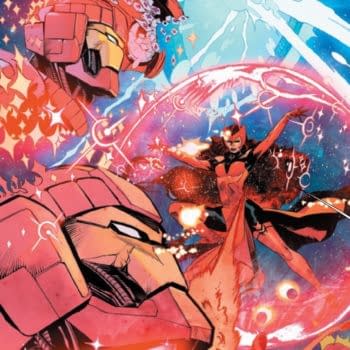Posted in: Comics, Recent Updates | Tagged: boom studios, Chip Mosher, Christine Dinh, Comics, comixology, entertainment, fantagraphics, Jacq Cohen, Jen Vaughn, Lumberjanes, Mel Caylo, san diego comic con
Tweeting At Buzzfeed And Other Don'ts Of Indie Comics PR 101
Liz Hey writes about San Diego Comic Con:

But one quick Google search and a public Twitter account later, and an entire conference room of con goers became part of some light cyber bullying (if you can consider "we're talking about you when you're not here!" bullying). For the record, while the panel advised getting to know writers and reviewers interested in your genre, they suggested not to approach them in such an aggressive, abrupt, and public way. In fact, it's advised that you begin with something simple and personal. As Christine Dinh, BOOM!'s Brand Communications Manager, suggested, a better tactic would've been a nice private message stating something along the lines of "I saw that you like Lumberjanes and thought maybe you'd be interested in this…"
While Mosher's actions might not be a prime example of what to do to market your indie comic to the public, Lumberjanes certainly is. The book that was recently released by BOOM! Box has quickly become the indie success story of the year, with creators who were virtually unknown by the industry at large now selling as many issues as shop shelf staples. Mel Caylo, a serious veteran of the Indie PR panel and BOOM! Studios's Marketing Manager, spoke proudly of his contributions in getting the title out there. While Jen Vaughn of Fantagraphics had mentioned earlier the importance of starting a PR campaign three months in advanced to the release of a print issue, Caylo described the extra care promoting Lumberjanes demanded. "We had to speak directly to retailers to let them know that they were going to get a new kind of customer in the store," he stated. The discussions between BOOM! and stores apparently did require a degree of convincing but obviously paid off for both parties in the end. The female creative team on the title did have popular followings on Tumblr but getting that social media presence to translate into a somewhat exclusive industry did demand some thoughtful preparation which Caylo of course had no issue delivering.
Still, even reaching a level where you can speak to retailers with such influence is difficult for most indie creators, especially those who are completely self-publishing. For web-comic writers in particular, there's a whole other set of procedures to follow. For instance, rather than three months, essentially all publicity needs to occur in the same day of the comic's release. However, Fantagraphic's Director of Publicity and Promotions, Jacq Cohen, certainly advised for short release web strips to have a good 10-15 minutes worth of reading before revving up the press engine and reaching out to reviewers and audiences.
As anyone in PR can tell you, with or without a panel, thoughtful always beats out insistent when it comes to publicity campaigns. That seems to be all that the "Indie Marketing 101" has been trying to get across for years, though they have found new strategies to help along the way. Honestly though, knowing who would enjoy reading your comic as much as you do as a creator and being able to pitch it that way comes easy if you're even half as passionate as some of the indie writers that asked questions at the panel. After, that it's merely a matter of understanding the way the industry works and its specific timelines for releases. Of course, networking is also highly suggested to promote through your work through the word of others. For that, there's always the Comic Con after parties. However, any other details of what happens there should probably be left out of the press entirely…











